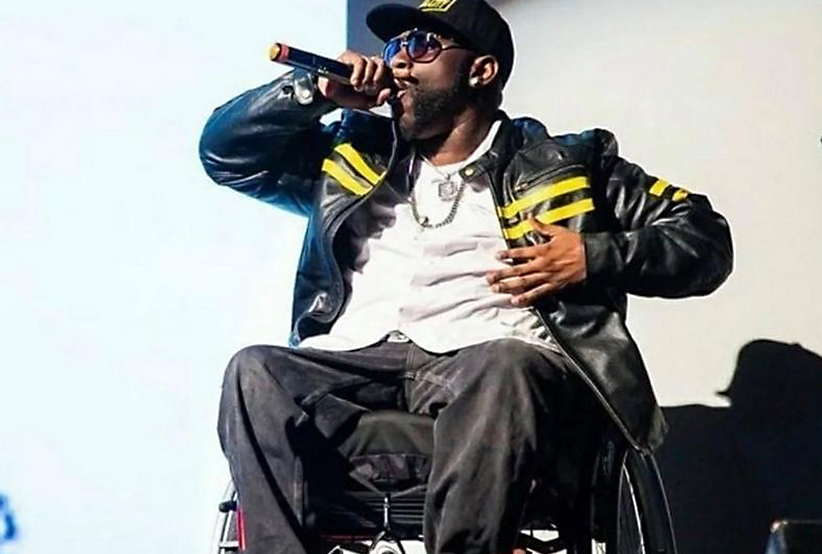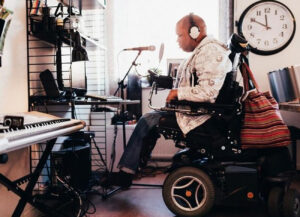
As Disability Pride Month draws to a close, The Grammys are taking a proactive approach to celebrate and elevate music professionals with disabilities. Recognizing the need for greater inclusivity and accessibility within the music industry, The Grammys have partnered with Recording Artists and Music Professionals with Disabilities (RAMPD), a coalition of esteemed creators with disabilities, to emphasize the importance of fostering a more inclusive and supportive environment year-round.
Reflecting on their recent collaboration with the 64th GRAMMYs, which featured visible stage ramps, sign language interpretation, live captioning, and audio descriptions, RAMPD is committed to amplifying Disability Culture on a significant scale. With a wealth of experience and a deep understanding of the challenges faced by individuals with disabilities, RAMPD members have shared their insights and recommendations to create a more inclusive and accessible music industry.
Promoting Inclusive Practices The Grammys Celebrating Disability Pride Month
Understanding that 26 percent of Americans identify with some form of disability, neurodiversity, chronic illness, or communication differences, The Grammys and RAMPD are advocating for the integration of disabled individuals into all aspects of the music industry’s decision-making processes. By championing the meaningful inclusion of disabled voices, The Grammys are striving to ensure that the needs and perspectives of this diverse community are acknowledged and respected throughout the industry.
Advocating for Representation and Visibility
Recognizing the power of representation, The Grammys and RAMPD are encouraging music companies, agents, and venues to actively seek out and support disabled artists. By placing a strong emphasis on talent and work ethic rather than health status, The Grammys are championing a culture that celebrates disability with pride and dignity. The coalition is dedicated to providing equal opportunities for disabled artists and professionals, fostering an environment where diversity is embraced and celebrated.
Implementing Accessible Measures
With a focus on making music events more inclusive, The Grammys and RAMPD are prioritizing the implementation of accessible measures, including visible ramps, sign language interpretation, and below-the-line representation of disabled artists and professionals. By publicly highlighting these initiatives, The Grammys are not only ensuring the participation of disabled individuals but also raising awareness and generating enthusiasm among a diverse audience.
Prioritizing Inclusive Hiring Practices
The Grammys and RAMPD are championing inclusive hiring practices, striving to create a level playing field for professionals with disabilities at all levels of the music industry. By providing accessible work environments, inclusive training programs, and equitable employment opportunities, The Grammys are fostering an environment where disabled professionals can thrive and contribute their unique perspectives and talents to the music industry.
 Fostering an Inclusive Culture
Fostering an Inclusive Culture
By embracing diversity and inclusivity, The Grammys and RAMPD are cultivating a culture that values the contributions of individuals with disabilities. With a strong focus on representation and visibility, The Grammys are committed to amplifying the voices of disabled individuals and incorporating their perspectives into the fabric of the music industry. As Disability Pride Month comes to a close, The Grammys’ partnership with RAMPD serves as a powerful reminder of the importance of fostering an environment where all music professionals, regardless of their abilities, can flourish and succeed.
The Grammys’ collaborative efforts with RAMPD underscore the transformative power of inclusivity, demonstrating that a diverse and inclusive music industry is not only possible but also necessary for fostering creativity and innovation. By prioritizing the needs and perspectives of individuals with disabilities, The Grammys are paving the way for a more vibrant and dynamic music industry that celebrates the richness of Disability Culture. As The Grammys continue their journey towards inclusivity, their partnership with RAMPD serves as a beacon of hope, signaling a brighter and more inclusive future for music professionals with disabilities.
